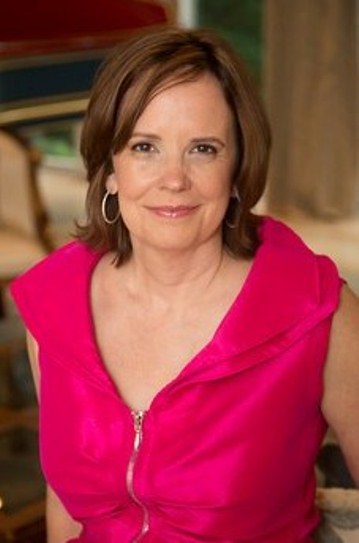What Garrison Means to Me: Lisette Cooper
By Garrison Institute Lisette Cooper is a Garrison Board Member and the Founder and Chief Executive Officer of Athena Capital Advisors, an investment advisory firm serving private clients, foundations, and endowments. She is committed to social justice and shares our passion for extending the benefits of contemplative practice into the major institutions of society, such as the educational and social services systems.
Lisette Cooper is a Garrison Board Member and the Founder and Chief Executive Officer of Athena Capital Advisors, an investment advisory firm serving private clients, foundations, and endowments. She is committed to social justice and shares our passion for extending the benefits of contemplative practice into the major institutions of society, such as the educational and social services systems.
We caught up with her recently to discuss what the Garrison Institute means to her.
You’re familiar with many different retreat centers. Is there something that stands out to you about the Garrison Institute?
Absolutely, I think Garrison has a couple of things that make it unique. First of all, where it is located geographically. Being such a short drive or train ride away from New York City, I think, gives the Garrison Institute a much more international or global mindset.
The other thing is the quality of the space. Both inside and outside, the grounds are very conducive to a contemplative atmosphere.
Why is the international mindset important to you?
I have a real interest in bringing the benefits of contemplative practices into action in the world. I think contemplative practices can help regular people in all kinds of different contexts and Garrison helps enable this.
Personally, I want to make contemplative practices available within the educational system for kids who may have emotional issues or suffered trauma. It can help them develop pro-social skills and be happier, regardless of the circumstances that they’re in.
What do you see the Garrison Institute doing to help bring contemplative practices into the wider world?
An important aspect of the work that Garrison does is that we’re interested in evidence-based practices and looking at the science of contemplative practice to demonstrate its efficacy with helping people. Evidence-based studies are how it is going to be accepted in institutions of modern society.
Another important piece of the Garrison approach is systems thinking. We aren’t only interested in personal transformation—even though that is a key component of Garrison’s mission—but also how the different pieces fit together: our political systems, economic systems, and planetary systems.
What’s the most powerful personal experience you’ve had at the Garrison Institute?
Once, at a retreat with Lama Surya Das, I was sitting in the audience and looking at the big, golden Buddha behind the teacher. I just felt like that essence, whatever the teacher was trying to communicate, was present in the Buddha and in the teacher. And it was present in me. It was just kind of being reflected back and forth between us—the students, the statue, and the teacher. It was a very lovely experience.